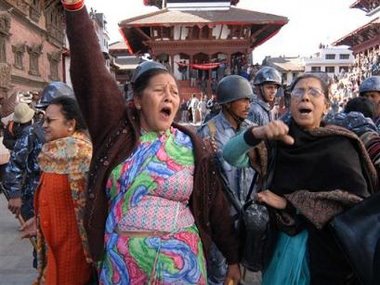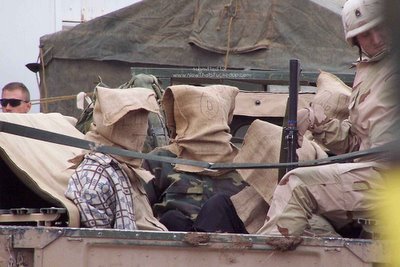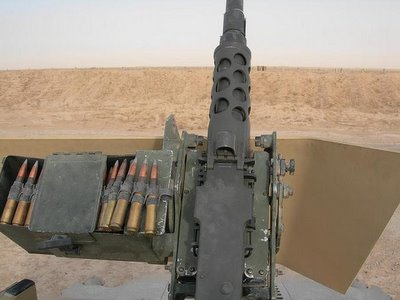The terms of Bin Laden's "truce" are deemed not worthy of discussion by the US foreign policy establishment. How many times in the last 24 hours have I heard or read the "we don't negotiate with terrorists" line?
But I find that somewhat dishonest. To a large degree, and for a long time, the US has been setting the terms of this engagement. If you look back well before 9-11, many experts were predicting that US foreign policy and presence in the middle east could easily spill over into terror attacks within our shores.
As an example, take a look at the
Nunn-Lugar program, started in 1991, designed to decommision and destroy Soviet nuclear arsenals so that the materials would not fall into hands hostile to the US, or the
Hart-Rudman Commission report from 1999 which said, "Americans will likely die on American soil, possibly in large numbers."
And, quite frankly, well before the 9-11 attacks, Bin Laden himself repeatedly warned the US to remove its military presence from Islamic lands.
So, by maintaining an aggressive policy in the middle east, backed by the presence of US troops, the US national security establishment was indeed setting terms in this conflict and accepting its known risks.
Somewhere along the line, a bargain was struck, an equation was written in the US national security evaluation, that the presence of US troops in the middle east was worth some risk of blowback in the possible form of terror attacks.
In other words, a US military presence in the middle east was worth some nominal risk to your life.Now, I don't know enough about the great long term arc of the foreign policy path we are on to make a judgement on this evaluation, but I think it's important that we recognize that a decision has been made that some fractional risk to your well being is worth being undertaken to maintain US access and control over the oil reserves of that region.
And in that,
we are negotiating with the Arab world. We have set the terms for this engagement by supporting the Saudi oligarchy and Mubarak in Egypt, as well as interference in all of the smaller oil countries of that region.
Bin Laden is merely a symbol of a larger rejection of US foreign policy across the Muslim world. People, a lot of kids, in this region buy posters and wear T-shirts with Bin Laden's face on them in very large numbers. If we were to capture or kill him, another symbol of that movement would arise so long as the US maintained its current policies.
Whether that new face would be more violent or less violent, whether it would command more support or less support, whether it would be a state leader, a religious leader, or another Bin Laden, I don't know.
But the issue is not that there are a set number of terrorists who can be rounded up and defeated; the issue is that US foreign policy in the region has alienated and continues to alienate significant numbers of Muslims who, in the face of their US backed governments, have very little course of response beyond terrorism.
So, this is the current bargain, the current state of terms in our negotiations with Bin Laden, or more precisely with the disaffection out of which his supporters come. And so long as the US maintains a hard line on the terms of its engagement in the region, we will have to be willing to accept the cost.


















